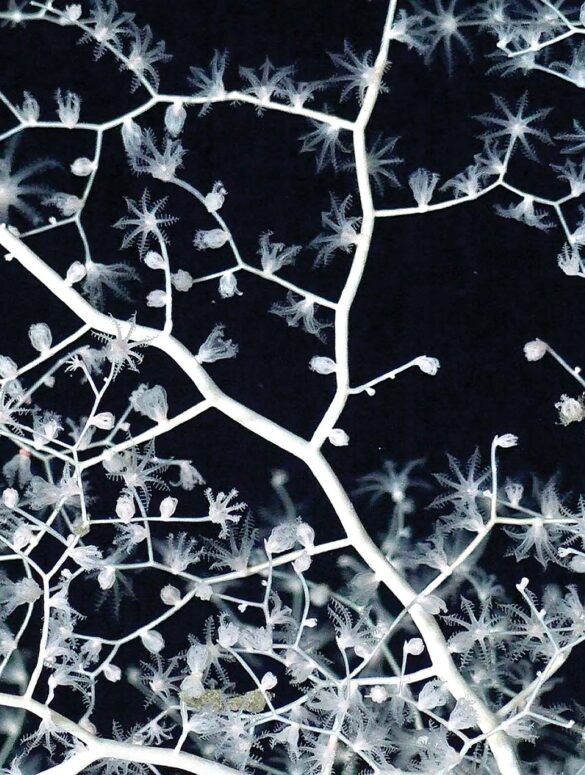Text by Lindsey Kesel
Images courtesy of Schmidt Ocean Institute
Eighty percent of our planet’s living space is the deep sea,” says marine scientist Peter Girguis in the video Sharing Why the Deep Matters, part of the Science Stories series on Schmidt Ocean Institute’s Youtube channel. A scientist aboard the Institute’s 2023 expedition to study hydrothermal vents off the coast of the Western Galapagos Islands, Girguis goes on to explain how our collective well-being depends on people’s willingness to work together for marine exploration and stewardship. By providing resources that empower Girguis and other researchers to advance deep-sea science—and documenting and sharing their incredible journeys of discovery—Schmidt Ocean Institute is energizing people from all walks of life to care about the fate of the ocean.
Launched in 2009 by entrepreneur and former Google CEO Eric Schmidt and his wife Wendy, a philanthropist and competitive sailor, the 501(c)(3) private nonprofit foundation is built on the couple’s vision to expand ocean awareness and advance ocean health through tech-driven research.
“We realized that the biggest barrier to ocean science was access to a ship,” says Wendy Schmidt, president of Schmidt Ocean Institute, to Waves in a statement. “By providing scientists with a state-of-the-art research vessel—at no cost, in exchange for making their discoveries and research publicly available and in real time—we can accelerate ocean science and exploration.”
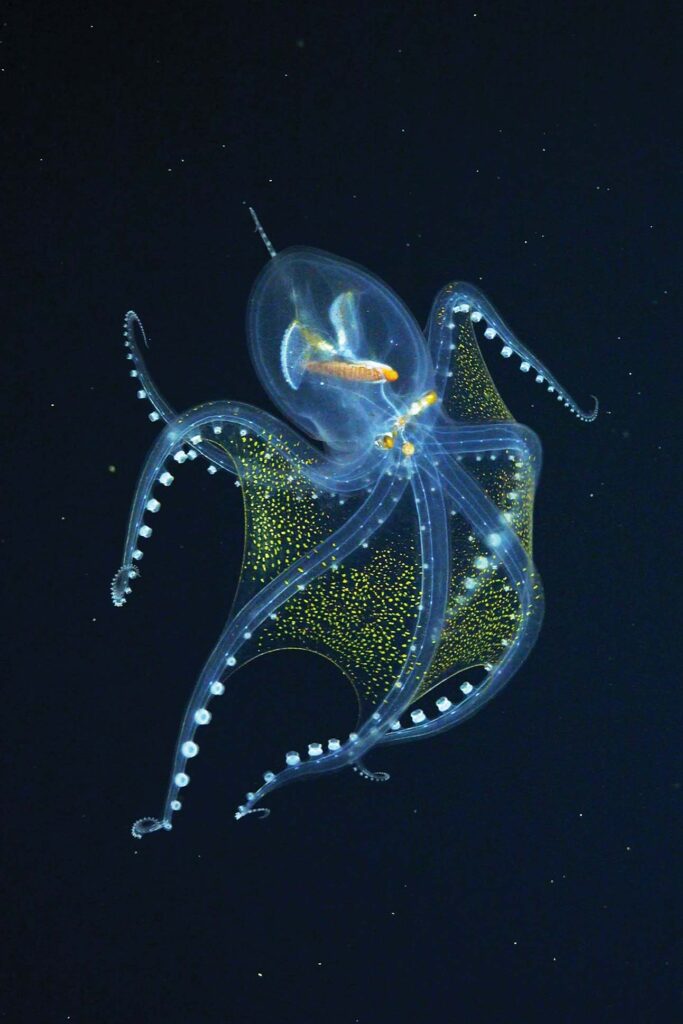
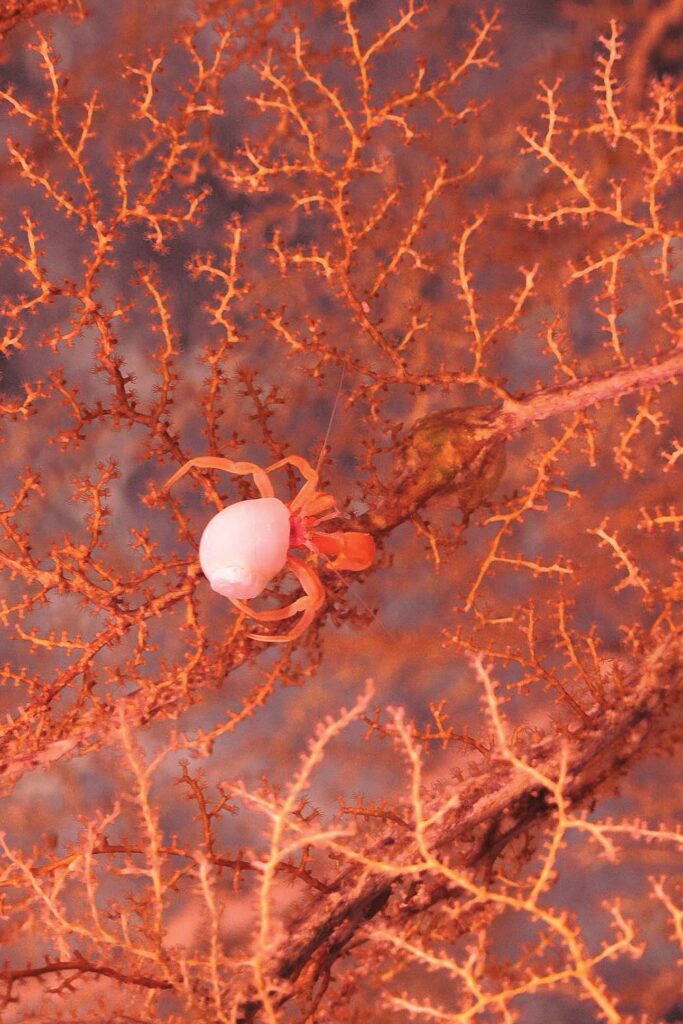
Recognizing the complex and costly nature of deep-sea investigation, the foundation purchased an 83-meter German fisheries protection vessel, and commissioned a three-year, multi-million retrofit of the ship. In 2012, the state-of-the-art floating laboratory—named Falkor for a character in the movie The Neverending Story—took to the sea to explore suboceanic realms and encounter the unknown.
Over a decade of service, Falkor has ferried 1,100 scientists and countless supporting crew on transoceanic expeditions of exploration with multifarious goals. Some examples of previous expeditions include the study of the long-term effects of the Deepwater Horizon oil spill, testing coral’s resilience to climate change, and mapping over half-a-million square miles of seafloor. For every endeavor, the foundation made Falkor available at no cost in return for the researchers’ promise to share all of their scientific findings with the public.
In March 2023, Schmidt Ocean Institute replaced its hallmark ship with Falkor (too)—a 110-meter global-class research vessel that can travel greater distances and host larger scientific groups—broadening the potential for breakthrough science at sea. Among the impressive suite of deep-sea probing technology on board, the new ship houses a Remotely Operated Vehicle (ROV) that functions as the eyes, ears, and arms for scientists underwater. A valuable asset to the ship’s burgeoning robotics program, SuBastian enables extensive data collection and versatile experimentation to depths of up to 4,500 meters.
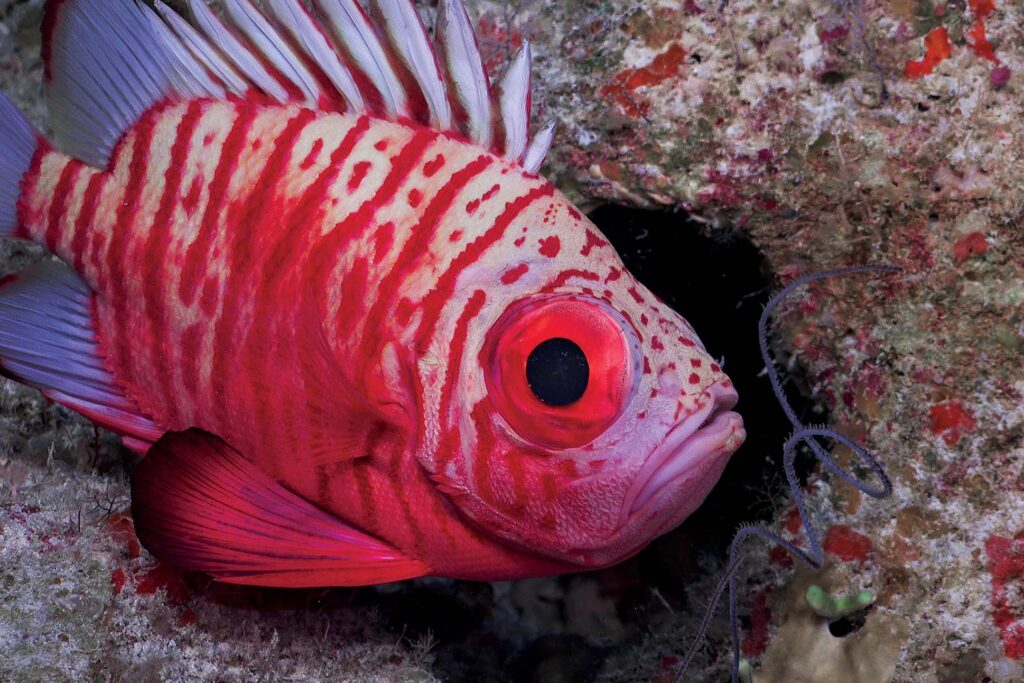
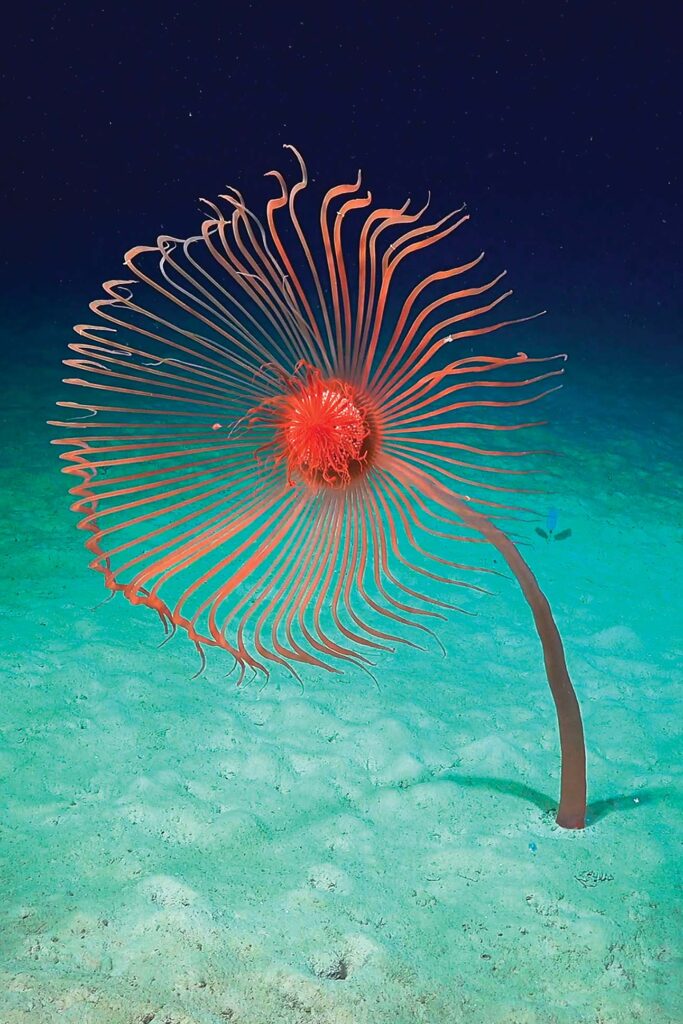
During the first six months at sea, Falkor (too) embarked on six expeditions, each one yielding electrifying scientific discoveries including a hydrothermal vent field at East Pacific Rise, a submerged volcanic chain bordering Central America, a new octopus nursery off Costa Rica, and unearthed an entirely new ecosystem in the Pacific.
Near the Panama Canal, teams tested the dynamics of sinking microplastics using a custom-built Universal Filtering Object (UFO) instrument, and studied how microplastic pollution changed the deeper down it is.
In the waters off Puerto Rico, several potential new species of deep-sea corals were identified.
During each ROV dive, a high-tech camera setup captured the action as it unfolded, with “Divestreams” broadcast in real-time on social media channels.
Two novel outreach avenues—the Artist-at-Sea program and the Ocean Rising initiative—are aimed at engaging people beyond the scientific community and stoking ocean intrigue via portals of existing passions. “We have the technology to harness and explore the weird and wonderful deep sea,” Dr. Carlie Wiener, Schmidt Ocean Institute’s Director of Communications, tells Waves over a Zoom call from her office in Honolulu. “Now we’re making the marvels of ocean science accessible by capturing beautiful imagery, sharing discoveries, and meeting people where their interests lie.”
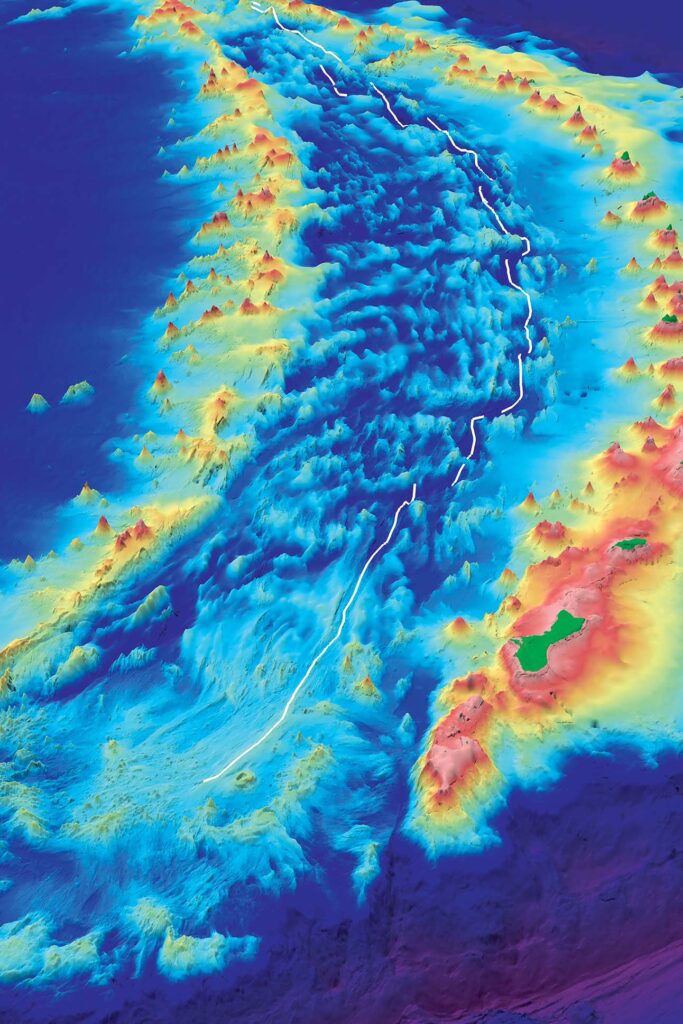
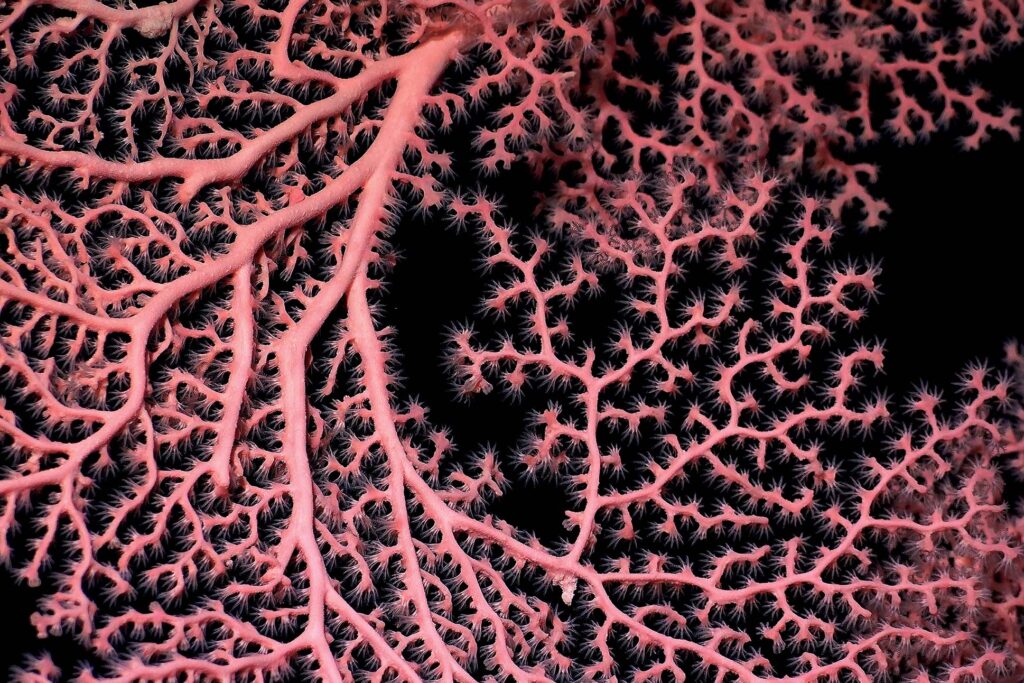
Launched in 2015, the Artist-at-Sea program invites creators from diverse disciplines to join the expeditions, and pairs them with leading marine scientists on board. Observing cutting-edge marine research, the guest artists leverage their experiences to forge new works of art during their residency. To date, 48 artists have showcased voyage-inspired pieces in virtual galleries and global venues such as Centro Ciência Viva science museum in Lisbon, Portugal, the 2021 United Nations Climate Change Conference in Glasgow, Scotland, and soon to be at Art Basel in Miami Beach.
Aboard the Dynamics of Sinking Microplastics mission in August 2023, through the Ocean Rising program, artist Shan Hua worked in virtual reality to design a creature based on the ship’s CTD, a sensor-based instrument that measures the seawater properties of Conductivity, Temperature, and Depth. Vogue China is producing a video series that follows Hua’s on-board journey as she blends science and art to explore the interplay between natural shapes and human emotions.
In partnership with the Nekton Foundation, Ocean Rising designs collaboration opportunities that mesh marine science narratives with major sectors of popular culture, namely through workshop-driven projects. The first two events in the series, held in London in 2022, gathered top experts in fashion and music to brainstorm ways to weave deep-sea imagery and science themes into their work. Upcoming workshops in sports, gaming, writing, food, and literature—and the growing Ocean Rising Alliance network of collaborators—are helping to spark a global awareness of the ocean.
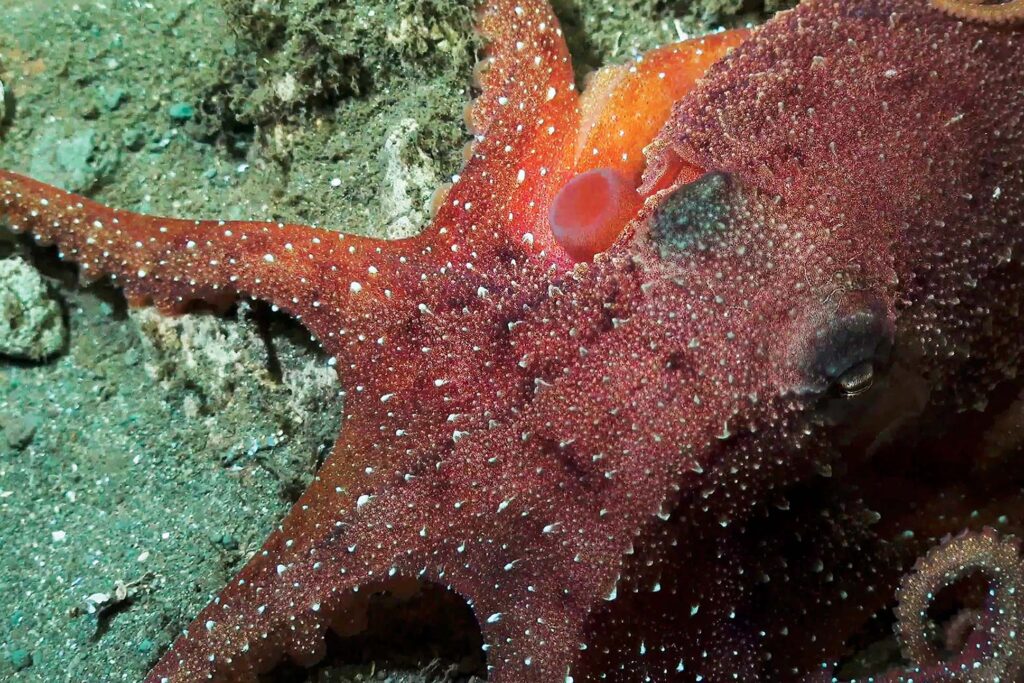
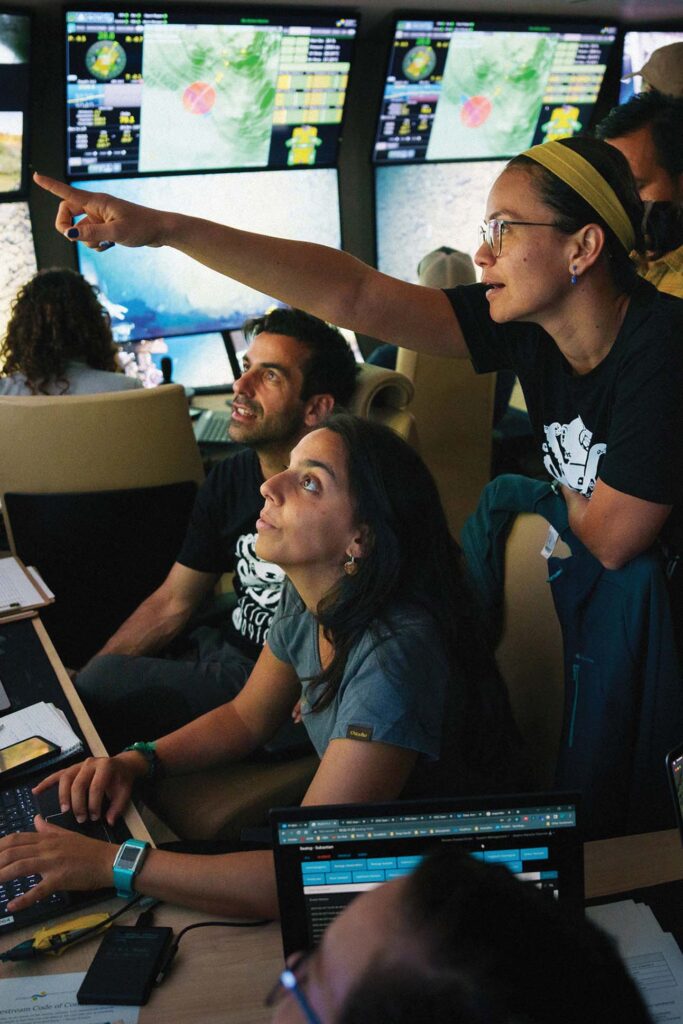
Underscoring all of Schmidt Ocean Institute’s efforts is the desire to indulge people’s sense of curiosity and wonder. “Some of the most fundamental questions about our planet, our life, and our climate are still mysteries,” says Executive Director Dr. Jyotika Virmani. “So the greater insight we have into what is happening beneath the waves, the more we will be inspired to care for and ensure its health—which is so intricately linked to our own.”
Follow @SchmidtOcean on Facebook, Twitter, and Instagram, and visit @SchmidtOcean on Youtube for video and to watch exploration live.
